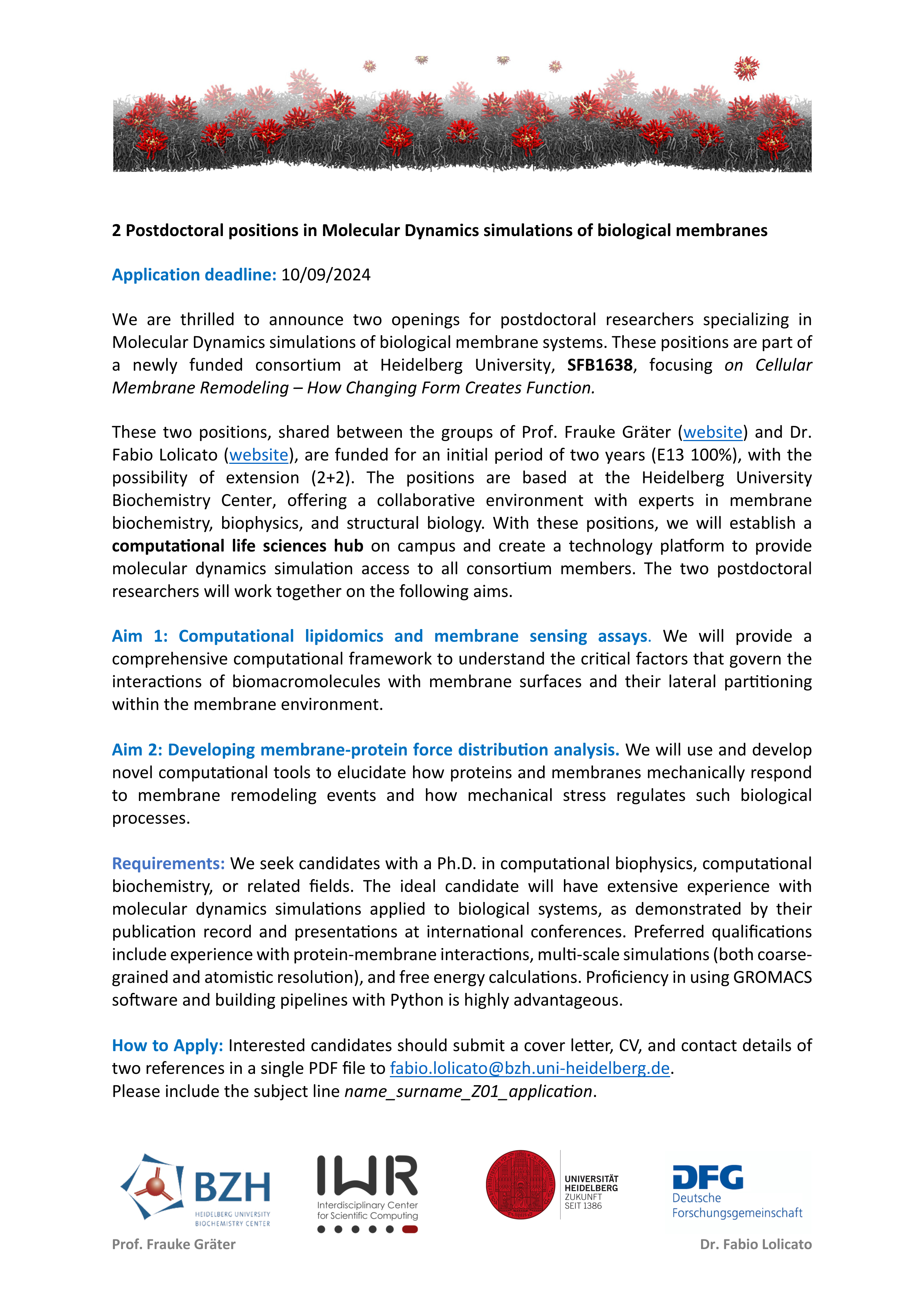2 Postdoctoral Positions in Molecular Dynamics: We are thrilled to announce two openings for postdoctoral researchers specializing in Molecular Dynamics simulations of biological membrane systems. These positions are part of a newly funded consortium at Heidelberg University, SFB1638, focusing on Cell Membrane Remodeling ~ How Changing Form Creates Function.
2 Postdoctoral Positions in Molecular Dynamics Simulations of Biological Membranes
Designation:
Postdoctoral Researcher
Research Area:
Molecular Dynamics Simulations of Biological Membranes
Location:
Heidelberg University Biochemistry Center, Heidelberg, Germany
Eligibility/Qualification:
We seek candidates with a Ph.D. in computational biophysics, computational biochemistry, or related fields. The ideal candidate will have extensive experience with molecular dynamics simulations applied to biological systems, as demonstrated by their publication record and presentations at international conferences. Preferred qualifications include experience with protein-membrane interactions, multiscale simulations (both coarse-grained and atomistic resolution), and free energy calculations. Proficiency in using GROMACS software and building pipelines with Python is highly advantageous.
Job Description:
These two positions, shared between the groups of Prof. Frauke Grater and Dr. Fabio Lolicato, are funded for an initial period of two years (E13 100%), with the possibility of extension (2+2). The positions are based at the Heidelberg University Biochemistry Center, offering a collaborative environment with experts in membrane biochemistry, biophysics, and structural biology. With these positions, we will establish a computational life sciences hub on campus and create a technology platform to provide molecular dynamics simulation access to all consortium members. The two postdoctoral researchers will work together on the following aims:
- Aim 1: Computational lipidomics and membrane sensing assays. We will provide a comprehensive computational framework to understand the critical factors that govern the interactions of biomacromolecules with membrane surfaces and their lateral partitioning within the membrane environment.
- Aim 2: Developing membrane-protein force distribution analysis. We will use and develop novel computational tools to elucidate how proteins and membranes mechanically respond to membrane remodeling events and how mechanical stress regulates such biological processes.
How to Apply:
Interested candidates should submit a cover letter, CV, and contact details of two references in a single PDF file to fabio.lolicato@bzh.uni-heidelberg.de. Please include the subject line name_surname_201_application.
Last Date for Apply:
10/09/2024








